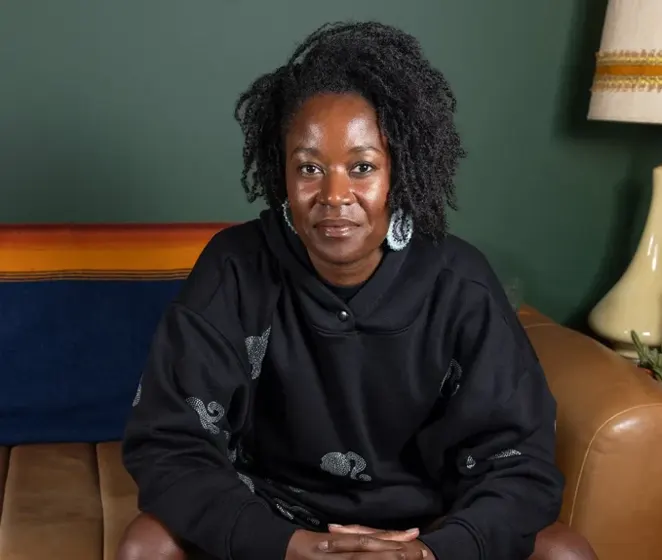by Intentional Spaces Psychotherapy
Bringing a new life into the world is profoundly beautiful, but it is also deeply disorienting. For many birthing parents, the postpartum period can feel like walking a tightrope, tethered to their baby and the responsibilities of parenthood, yet untethered from the person they once were. Sleep deprivation, hormonal shifts, and the immense emotional weight of caring for a newborn can make even routine tasks feel monumental. If you’re a partner, you may feel a quiet urgency to help, but at the same time, uncertainty about what is actually helpful can be overwhelming. You’re not failing if you don’t have all the answers, and it’s important to remember that learning how to love and support someone who is transforming is a process. Being present and willing to adapt is already a meaningful act of care.
This guide is for partners who feel both hopeful and helpless, who want to support the person they love most, and who might be unsure how to do that without overstepping or unintentionally causing more stress. Postpartum mental health isn’t just a medical issue; it’s deeply relational, tied to how partners show up for one another and how safe a new parent feels in expressing vulnerability. Small acts of support, emotional presence, and patient listening can profoundly shape a parent’s emotional recovery and the health of the entire family system.
What You Notice Might Be Enough
Sometimes, the most important thing you can do as a partner is simply to notice. It doesn’t require you to have all the answers or to immediately “fix” anything. Often, support begins with your awareness of subtle cues that signal your partner is struggling, even if she isn’t explicitly asking for help. You may notice this in quieter ways:
- A look that lingers too long in the mirror, as if she is lost in thought or grappling with feelings she cannot name.
- The way she tenses while holding the baby, her movements are slightly rigid, even when everything around seems calm and routine.
- A joke that lands with a hollow or forced quality, revealing that even small moments of levity feel muted.
- Pauses in conversation that feel heavier than normal, moments where words fail, and silence seems charged with emotion.
- Subtle changes in tone, posture, or energy suggest she is carrying more than she can easily express.
When you notice these small shifts, trust your instincts. If something feels “off,” it probably is. Rather than trying to provide solutions right away, offering acknowledgment can be profoundly healing. A simple, gentle question, such as, “I’ve noticed you’ve seemed quieter lately. Is there space to talk about how you feel?” can open a door to connection and relief. The act of being seen without judgment, without rushing to fix, is itself radical care. It communicates safety, validates her experience, and lays the foundation for emotional support. In moments like these, your presence, attentive, calm, and non-intrusive, often provides more healing than any words or advice could.
Paying attention to these cues also helps partners become more attuned to patterns over time. Emotional changes may ebb and flow, with difficult moments surfacing more intensely during sleep deprivation, stressful appointments, or feeding challenges. By noticing and naming these moments gently, you affirm that her feelings are real and worthy of care, which in turn fosters a deeper sense of trust, connection, and shared understanding during the postpartum journey.
Small Acts Become Anchors
You don’t have to do everything, but consistent, thoughtful action changes the postpartum experience dramatically. These small gestures are often more impactful than grand statements:
- Soft interruptions: slide your hand onto hers during a tense moment, make tea without asking, or simply sit quietly beside her
- Tender chores: put clean clothes away, handle the dishes, or tidy the nursery, small acts that relieve mental load
- Shared rhythms: step outside together for five minutes, take deep breaths together, or listen to music softly, creating micro-moments of connection
- Check-ins: ask how she is feeling, offer affirmations, or validate emotions without trying to problem-solve immediately
These small acts anchor the relationship. They tell her, without words, that she is not alone and that her emotional state matters.
When Words Shield Instead of Connect
Partners often say well-meaning things that can unintentionally minimize the experience of postpartum adjustment. Common phrases that fall flat include:
- “You’ll get through this soon, I promise.”
- “Other moms do much worse.”
- “The baby is healthy, that’s what matters.”
These statements may attempt reassurance, but they can feel dismissive or isolating. Instead, try:
- “This is harder than anyone warned us about.”
- “It makes sense how you’re feeling. This is a big life shift.”
- “I’m here with you, however long this takes.”
The goal is not to fix feelings but to witness and validate them. Emotional acknowledgment often provides the support that no advice or logic can offer.
Because Postpartum Fatigue Is Emotional, Not Just Physical
The body heals faster than the heart does. A birthing parent’s exhaustion often goes beyond sleep deprivation. It can show up as irritability, numbness, or a sense of disconnection from both self and baby. When this happens, the partner’s role in gentle, intentional care becomes essential.
Consider these ways to provide support:
- Pack a snack or water bottle for her to grab during the day
- Encourage micro-breaks from baby duties, even five minutes alone to shower or rest
- Hold space for tears, frustration, or silence without trying to fill it with words
- Offer reassurance that she is seen, loved, and valued, even when she feels overwhelmed
These micro-moments of care help the nervous system regulate and can slowly reawaken a sense of calm and emotional connection.
Supporting Each Other Without Losing Yourself
Partners may carry their stress, exhaustion, or uncertainty. Supporting someone through postpartum mental health challenges is emotionally taxing. It’s important to acknowledge your feelings, set boundaries, and seek support for yourself. Whether through therapy, peer groups, or trusted friends, having your outlet strengthens your capacity to be present, patient, and compassionate with your partner.
Understanding the Emotional Dance
Postpartum adjustment often triggers subtle but powerful emotional tension between partners, creating a complex, often unspoken “dance” in the relationship. One partner may feel constantly “on call,” hyper-aware of the baby’s needs, the household tasks, or the emotional state of the new parent, carrying a heavy load of responsibility and worry. Meanwhile, the other partner may instinctively withdraw, not out of lack of care, but as a way to preserve energy, regulate their own emotions, or cope with feelings of overwhelm. This push-and-pull dynamic is natural, yet it can unintentionally create distance or frustration if left unrecognized.
Conflict frequently arises around questions that feel practical on the surface, who gets to rest, who handles feeding or household chores, and how responsibilities are divided, but beneath these disputes lie deeper emotional needs. Partners may be seeking reassurance, connection, or validation, and when these needs go unmet, exhaustion, resentment, or guilt can intensify. Recognizing these patterns as relational dynamics rather than personal failings is a crucial step. It reframes moments of tension from “I am failing” or “They don’t care” to “This is a shared challenge that we can navigate together.”
The goal is to move through this emotional terrain side by side, rather than letting fatigue, frustration, or fear build walls between you. Emotional attunement, noticing the other’s state, responding with empathy, and adjusting your behavior accordingly, combined with shared vulnerability and patient presence, can transform tense moments into opportunities for connection. For example, taking a brief pause to acknowledge your partner’s stress, offering a gentle touch, or simply sitting together in quiet can defuse tension and reinforce that you are a team, even amidst exhaustion. Over time, these intentional practices build a rhythm of trust, understanding, and mutual support, helping both partners navigate the unpredictable and often overwhelming postpartum journey with greater resilience and compassion.

A Gentle Invitation
Supporting a partner postpartum is not about having the right words or solving every problem. It’s about showing up, noticing, validating, and creating space for emotions to be felt safely. Your presence, consistent, gentle, and attentive, can profoundly impact her healing and your relationship.
If you feel unsure, overwhelmed, or stuck, therapy or a postpartum support group can help both of you navigate this transition. Postpartum mental health support is for both partners, and creating space for guidance, education, and empathy ensures your relationship and family thrive.
You are not alone in this journey. By staying present, attentive, and compassionate, you are already offering the most crucial form of support: love that doesn’t waver, even when everything else feels uncertain.















